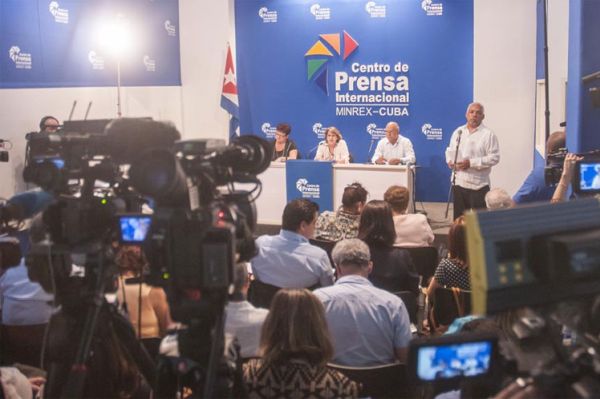
The Constitution of the Republic of Cuba has been ratified by 6.8 million voters of a total of nine million 298 thousand 277 registered
The National Electoral Commission (NEC) described as favorable the results of the referendum held on Sunday, in which almost seven million voters ratified the constitutional text, assured today Alina Balseiro, president of the entity.
According to
Balseiro, the preliminary results show the Constitution of the Republic of Cuba
has been ratified by 6.8 million voters of a total of nine million 298 thousand
277 registered voters. The ‘Yes’ vote represents 86.8 percent of Cubans who
exercised their right to decide.
Meanwhile, 706 thousand 400 persons voted ‘No’, representing nine percent of
all those who voted and 7.6 percent of the total registered persons with that
right.
Balseiro detailed the commission worked with 12 thousand 635 districts (122
abroad) and 25 thousand 345 polling stations (one thousand 48 abroad).
Working in the election were over 225 thousand authorities and collaborators
(students of medium and higher education levels), besides an accompaniment of
more than 200 thousand elementary school students who guarded the ballot boxes,
said the Commission president.
Of the total of ballots in the boxes, seven million 522 thousand 569,
representing 95.8 percent, were valid, while 198 thousand 674 or 2.5 percent
were blank and null ones amounted to 127 thousand 100 for 1.6 percent, reported
the NEC.
In all, nine million 298 thousand 277 Cubans were summoned to express their
opinion on the new Magna Carta, approved in December by the National Assembly
of People’s Power (parliament), after a nation-wide discussion by neighbors,
students, workers, professionals who proposed changes, to eliminate or add to
the letter of the Constitution.
The text consecrates the irrevocability of socialism in the island and the
rector role of the Communist Party in this society.
This Constitution expands the individual rights and guarantees, strengthens the
people’s power in municipalities, promotes foreign investment, contains
important changes in the structure of the State and recognizes several forms of
property, among them the socialist of all the people, private and cooperative.
 Escambray ENGLISH EDITION
Escambray ENGLISH EDITION





Escambray reserves the right to publish comments.